Are you embarking on a new research project and need to navigate the often daunting process of securing ethics approval from your university? Writing a well-structured letter is essential to ensure your application is taken seriously and meets all necessary guidelines. In this article, we'll explore key elements to include in your letter, from clearly outlining your research objectives to addressing ethical considerations. So, let's dive in and simplify the process of crafting an effective research ethics approval letter!

Clear Research Objectives
Research ethics approval is crucial for maintaining integrity and ethical standards in academic studies. Clear research objectives define the purpose of the investigation, ensuring transparency and focus on the intended outcomes. For instance, a study exploring the impact of online learning platforms on student engagement might outline objectives such as measuring engagement levels, identifying effective teaching strategies, and evaluating learner satisfaction. Specificity in these objectives helps ethical review boards assess potential risks and benefits, promotes responsible conduct, and ensures that participant welfare is prioritized throughout the research process. Clear objectives also facilitate data collection and analysis, enhancing the overall validity of the research findings.
Participant Consent Procedures
The Participant Consent Procedures for university research involve a systematic approach to ensure that individuals are fully informed and voluntarily agree to participate in a study. Key elements include clear communication of the study's purpose, which could range from psychological surveys to medical trials. Participants must receive comprehensive information regarding potential risks, benefits, and their right to withdraw at any time without penalty. Consent forms should be designed in accessible language, avoiding technical jargon, ensuring comprehension for diverse populations. Additionally, ethical guidelines necessitate the storage of consent documentation for a minimum of five years, safeguarding participant confidentiality in accordance with regulations such as the Health Insurance Portability and Accountability Act (HIPAA). Researchers must also provide contact details for participants to ask questions or address concerns, promoting transparency and trust.
Data Privacy and Confidentiality
Research ethics approval processes require that data privacy and confidentiality be rigorously maintained. In academic institutions, such as universities like Stanford or Harvard, compliance with guidelines established by ethics committees is crucial. Researchers must ensure participant information, including names, demographics, and sensitive data, remains confidential throughout the study. Secure storage methods, such as encrypted databases and password-protected files, are essential for maintaining privacy. Informed consent forms must communicate clearly the measures taken to protect data and the potential use of this data in future studies, adhering to regulations like GDPR (General Data Protection Regulation) in Europe. Anonymization techniques also play a vital role, allowing researchers to analyze data without linking it back to individual participants. Comprehensive training for all researchers involved is necessary to uphold ethical standards in data handling and protection.
Potential Risks and Mitigation
When conducting research involving human participants at institutions like universities, potential risks can arise, including psychological distress during interviews or data collection. Mitigation strategies, such as providing participants with informational briefs about the research, can minimize anxiety and enable informed consent. Implementing anonymization techniques ensures that sensitive data remains confidential, protecting participants' identities. Furthermore, providing resources, such as counseling services, addresses any emotional impacts stemming from the research process. Regular ethics training sessions for researchers can also enhance awareness of ethical considerations, ensuring compliance with institutional guidelines. Continuous monitoring throughout the research project enables swift identification and resolution of any unforeseen risks.
Compliance with Ethical Guidelines
University research projects require strict adherence to ethical guidelines to ensure the welfare of participants. Ethical Review Boards (ERBs) assess research proposals for compliance with standards such as informed consent, confidentiality, and minimization of harm. The Belmont Report (1979) outlines foundational ethical principles like respect for persons, beneficence, and justice, which guide researchers in designing their studies. Compliance with Institutional Review Board (IRB) protocols is mandatory for studies involving human subjects to protect vulnerable populations, including children, the elderly, or individuals with cognitive impairments. Researchers must submit detailed methodologies, consent forms, and risk assessments, ensuring transparency and accountability in their work. Successful navigation of these ethical frameworks fosters trust between researchers, participants, and the wider community, promoting the integrity and credibility of academic research.
Letter Template For University Research Ethics Approval Samples
Letter template of ethical compliance application for university research.
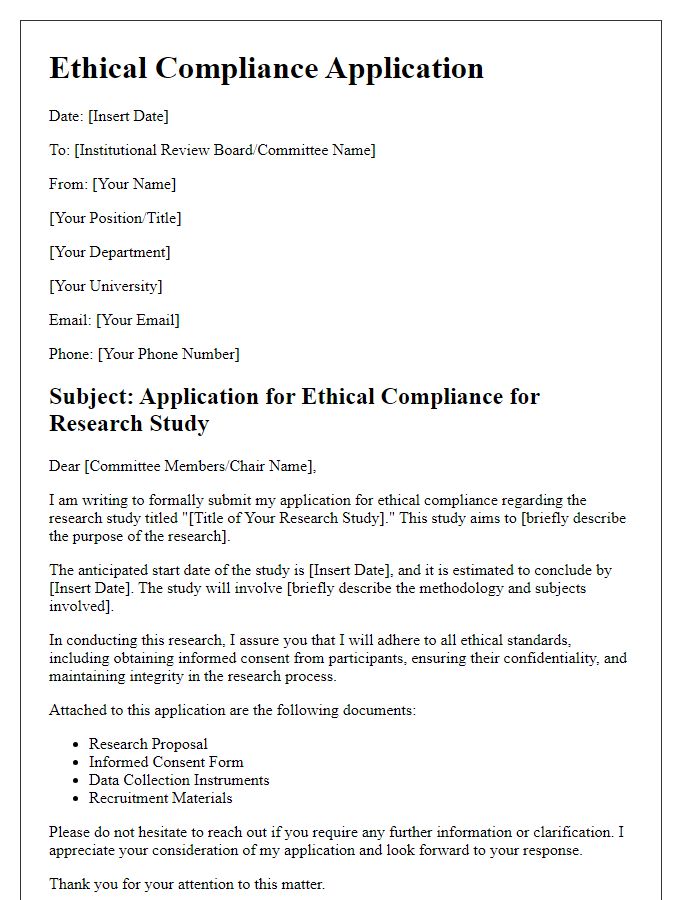
Letter template of proposal for ethics clearance in university research.
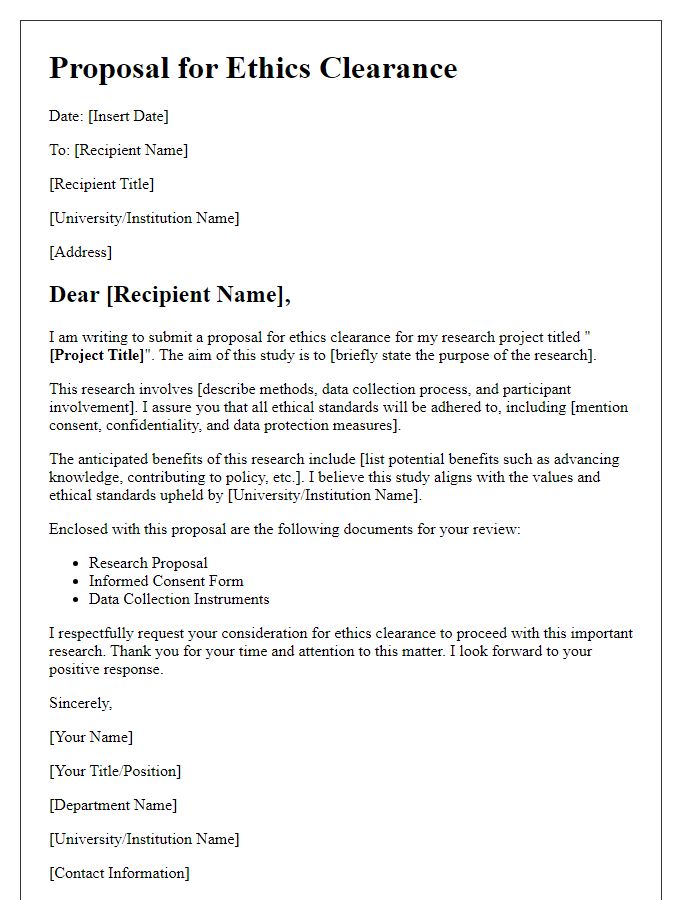
Letter template of documentation for ethical standards in research protocols.
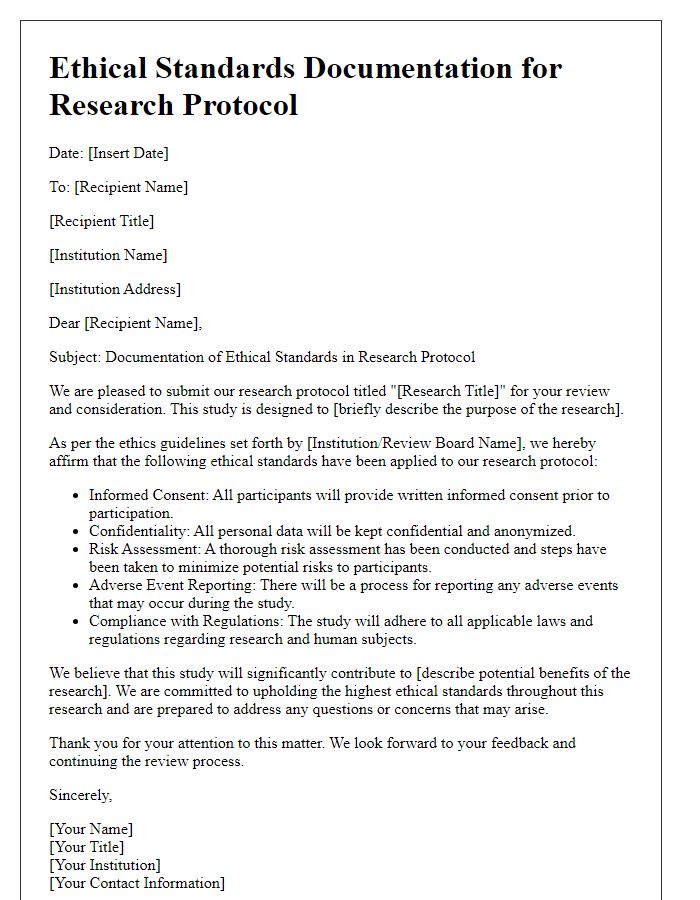

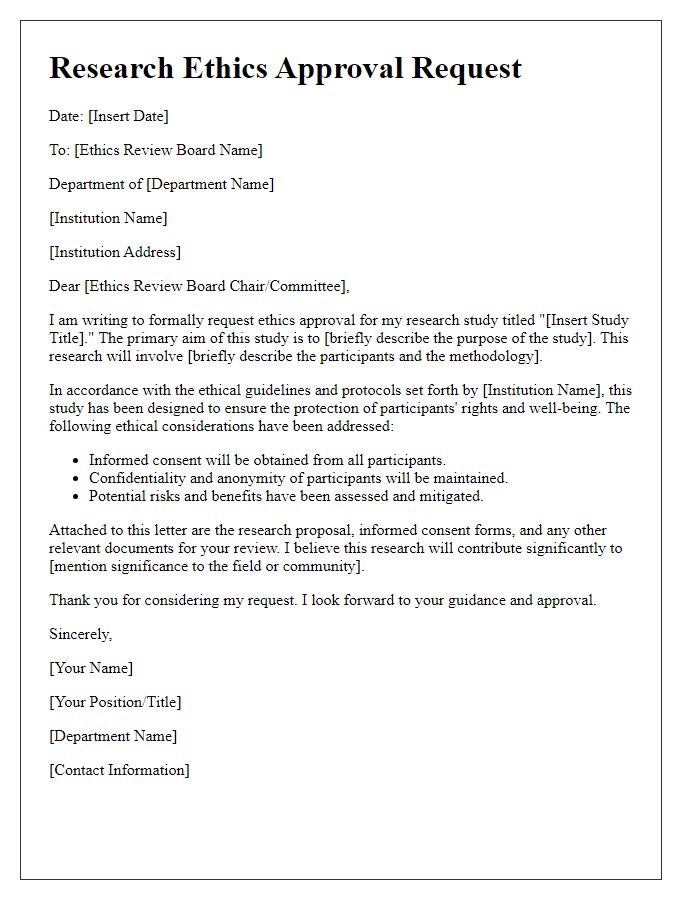
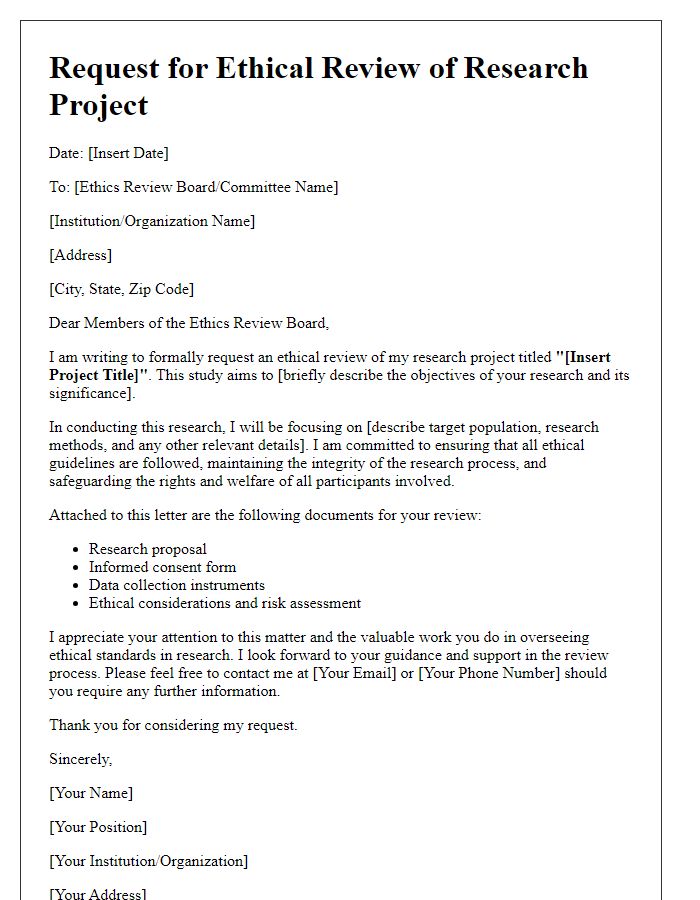
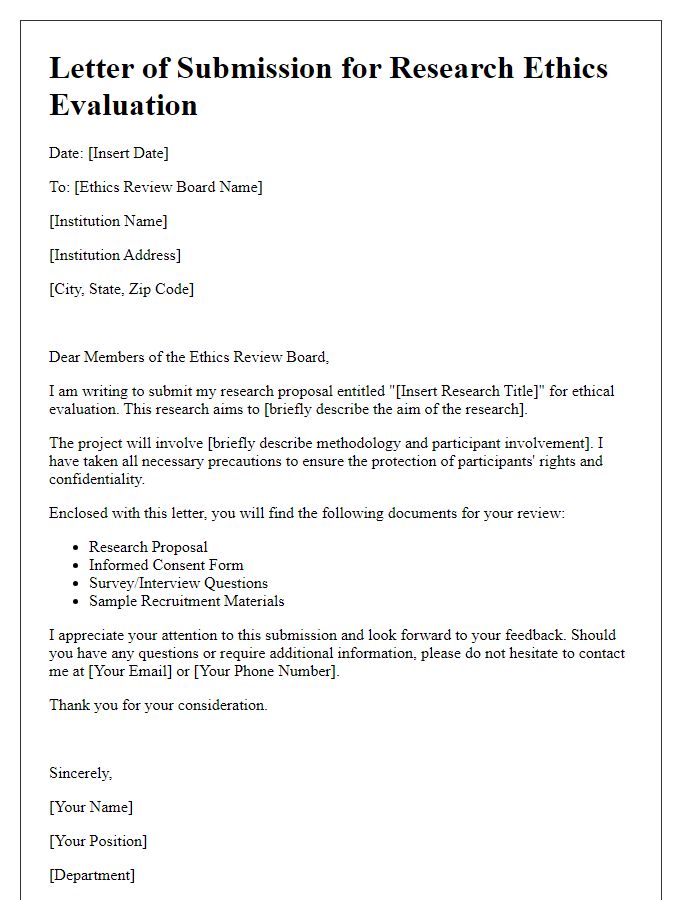
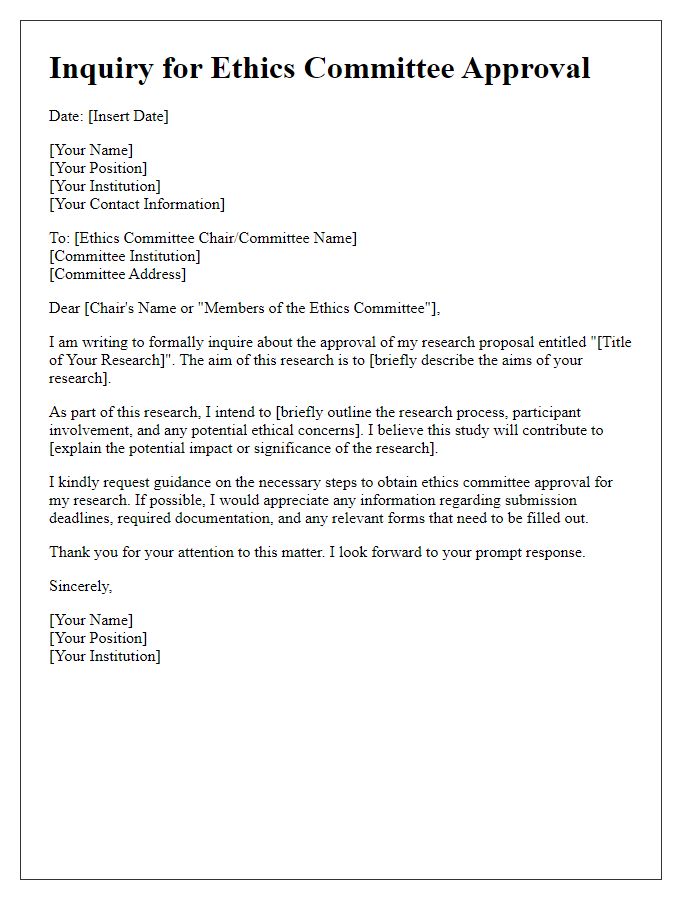
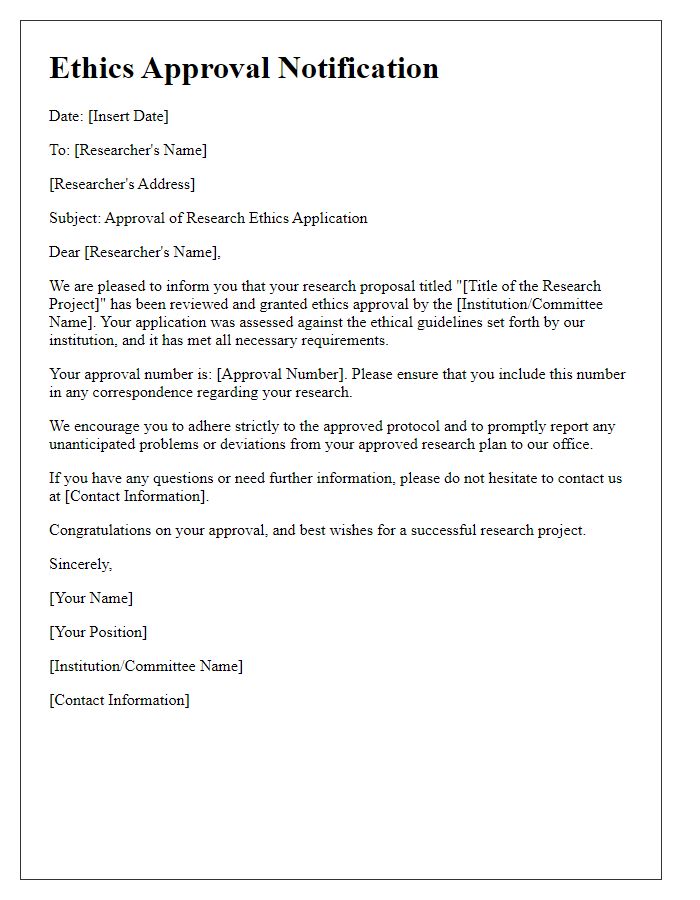
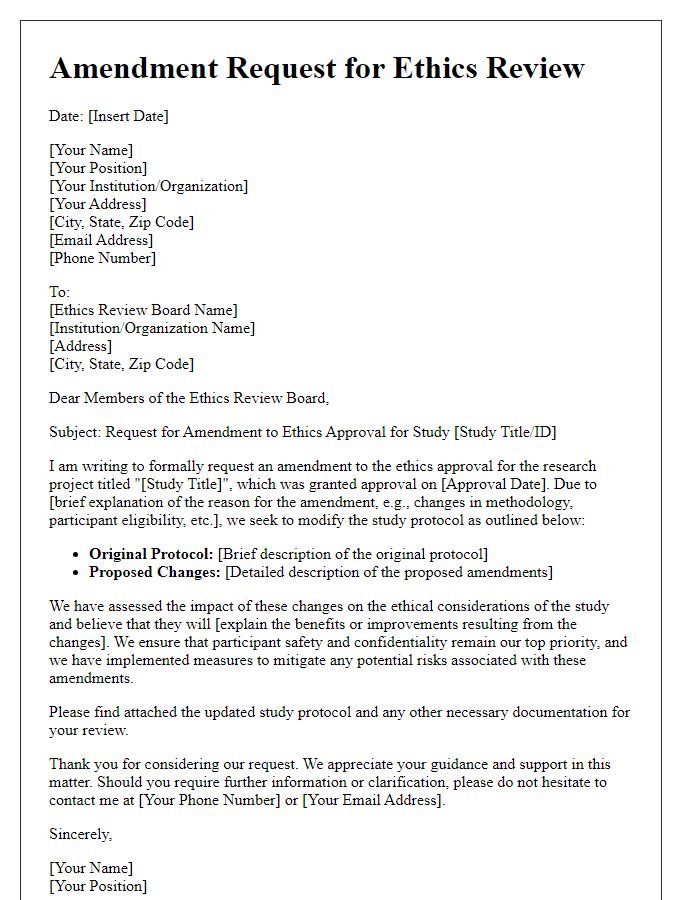
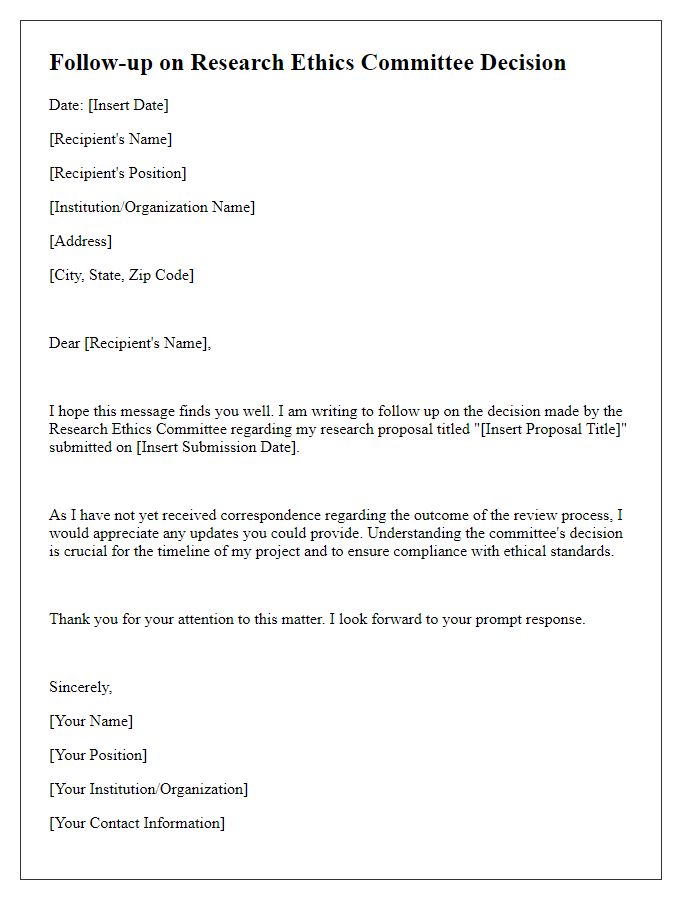


Comments